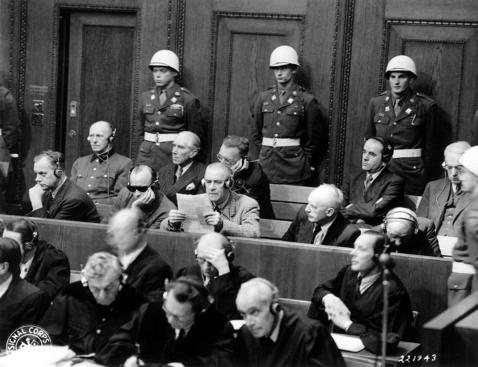
“Genocide.” That’s the announced verdict of Ukrainian president Volodymyr Zelenskyy as images of hundreds of civilian dead — some with their hands bound, apparently executed — emerged from the city of Bucha following a withdrawal of Russian troops.
“You may remember I got criticized for calling Putin a war criminal,” says US president Joe Biden. “Well, the truth of the matter — we saw it happen in Bucha — he is a war criminal.”
What actually happened in Bucha is uncertain and may remain so forever. The Ukrainians claim that Russian soldiers murdered the civilians. The Russians seem to alternately claim the entire scene was staged, or else that the victims were suspected Russian sympathizers/collaborators killed by fellow Ukrainians. Probably mass murder, but who did it?
Unfortunately, absent total defeat a la Germany and Japan in World War Two — an unlikely outcome for either side in Ukraine — such crimes will almost certainly go unpunished. Neither the actual perpetrators (whoever they are), nor their commander in chief (whoever he is), will suffer significant consequences for their actions.
Biden’s call for Vladimir Putin to face trial –presumably in the International Criminal Court — is a combination of political grandstanding and gross hypocrisy. His own government refuses to recognize that court and threatens to sanction its judges and prosecutors if they investigate US war crimes.
But he does have a point.
“To initiate a war of aggression,” reads the Judgment of the International Military Tribunal, convened to prosecute accused Nazi war criminals at the end of World War Two, “is not only an international crime; it is the supreme international crime differing only from other war crimes in that it contains within itself the accumulated evil of the whole.”
By that standard, Vladimir Putin is a war criminal for his order to invade Ukraine. The Bucha massacre, if perpetrated by Russian troops, is just a subsidiary crime.
So is Petro Poroshenko, Zelenskyy’s predecessor, who oversaw Ukraine’s war of aggression against two seceded republics in the Donbas region along the Ukraine-Russia border.
Zelenskyy himself, as well as Biden, are guilty of continuing wars of aggression initiated by their predecessors — Zelenskyy in the Donbas; Biden in, among other places, Syria.
Harry Truman never faced trial for two of the largest terror attacks in history (the atomic bombings of Nagasaki and Hiroshima). George W. Bush and Barack Obama will probably never pay for their war crimes. Ditto Putin and Zelenskyy.
Occasionally, if the heat’s really on, the world’s political class will toss a few small fry under the bus. Absent total state collapse, the ringleaders usually skate.
Which is a very good reason to support total — and universal — state collapse. War itself is the crime, and the state is the perpetrator.
Thomas L. Knapp (Twitter: @thomaslknapp) is director and senior news analyst at the William Lloyd Garrison Center for Libertarian Advocacy Journalism (thegarrisoncenter.org). He lives and works in north central Florida.
PUBLICATION HISTORY


